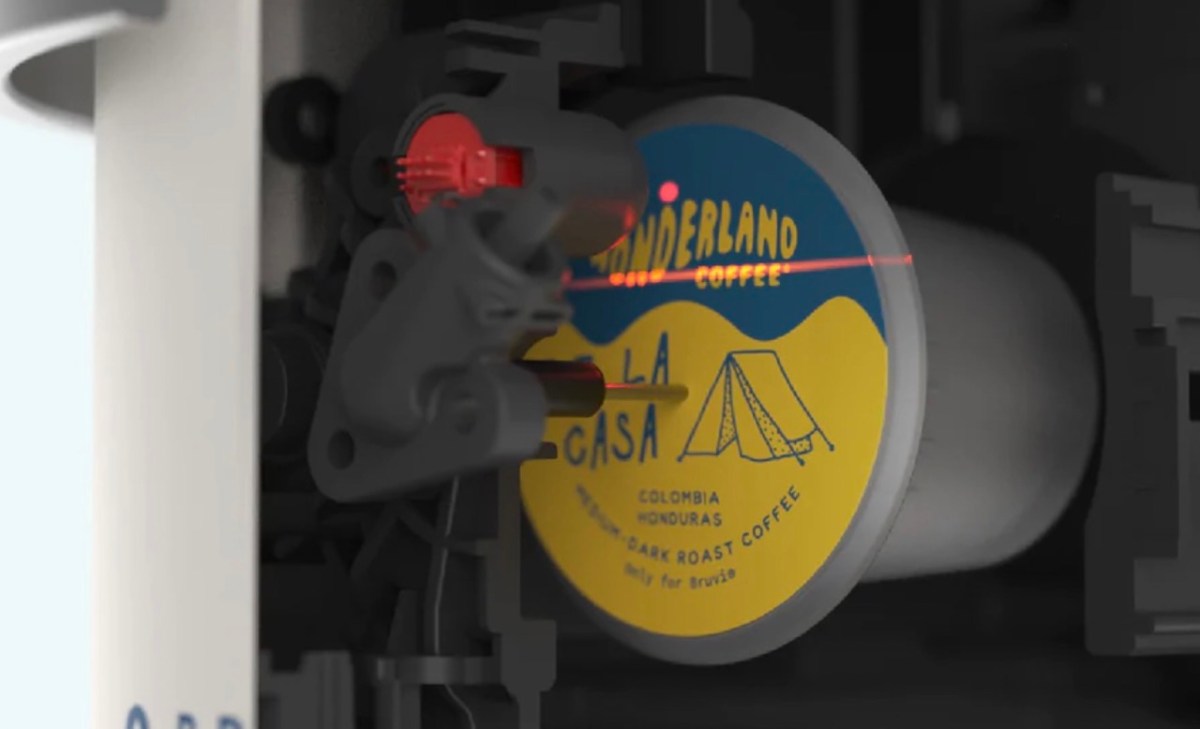Bruvi’s new coffee pods bio-degrade faster with the power of enzymes • TechCrunch
Bruvi‘s B-pods take a novel approach that (probably correctly) assumes consumers are too lazy to return their aluminium pods to the manufacturer (looking at you, Nespresso), and too clumsy to do the pre-processing needed to properly dispose of other pods. So the company instead assumes that the pods go to a landfill, and designed them to disintegrate when they do.
The company caught my attention just days after Intropic received the runner-up prize at TechCrunch Disrupt Battlefield for its plastic-degrading bio-enzyme tech — seeing another implementation of the same idea turn up in the wild in a commercial application is exciting.
Personally, I’d still prefer we’d just use bean-to-cup solutions instead; the coffee itself is perfectly biodegradable, after all, but consumers are gonna consume, I guess.
“The reality today is that the world uses a lot of plastic. But if we’re being really honest, there are still no scalable and truly commercially viable alternatives to this material — especially in the U.S. where access to industrial composting facilities is very limited,” says Bruvi co-founder Mel Elias, in an interview with TechCrunch ahead of the company’s launch of its new coffee machine. “Plastic, especially for packaging, is cost-effective, preserves food freshness and safety and uses comparatively fewer natural resources or carbon footprint to produce. We think the biggest problem with plastic — especially single use plastic, is its end of life — i.e. plastic waste.”
Plastic has gotten a bad rap, of course, and there’s a lot of confusion among consumers in terms of what is actually recyclable.
“We are convinced here at Bruvi that we have found a very viable alternative, other than recycling, to address the problem of plastic waste by using bio enzyme technology,” Elias says. “Some innovative companies continue to pursue the quest for alternative packaging materials — and that’s great and very much required. But our approach at Bruvi, as a local startup without billions of dollars of capital, has been to ask — what do people do now? What infrastructure exists? How can we make it better than before in practical steps that the masses can adopt without expecting a migration of human behavior?”
The company decided to play some more environmental notes at the start of its life, setting out to create a platform that could be more eco-efficient, without encumbering the consumers.
“For consumers who are under the perception that single-serve pod coffee systems are bad for the environment, our aspiration at Bruvi is to ultimately turn this perception on its head and demonstrate that if you really care about the environment but still want to drink specialty coffee, Bruvi is your choice,” Elias argues. “The enzyme-infused pod allows us to achieve this lofty objective. First it provides for a better alternative for responsible plastic waste disposal, but also preserves the merits of plastic as a meaningful improvement to the social impact of consuming specialty coffee. While the real problem of plastic or aluminum capsules buried beneath the landfill for 1,000 years must be addressed, the solution must never be worse than the cure.”
The cynic in me was curious if this planet-friendly plastics thing could just be a launch stunt; nothing stops the company from switching back to traditional (and, presumably, cheaper) plastics as soon as they are in consumers’ hands — the cost, both in time and in money, to use an alternative plastic was not insignificant.
“This is the first time enzyme-infused plastic has been applied to a polypropylene coffee capsule, so this has already been an expensive endeavor for us as a startup,” Elias admits. “Adding the bio-enzyme admittedly does add a significant enough increase to the actual cost of our pods that would be a disincentive to most. Our social impact mission demands this course of action and so do the consumers we are trying to reach. Simply put, we couldn’t afford not to implement this solution.”
The company claims it spent almost five years to find a plastic that could have the moisture and oxygen barriers needed for a coffee capsule, while keeping food safety and the need for a high-pressure coffee brewing system in place.
“Our immediate hope is that the large waste management companies that own or manage the majority of the active landfills in the U.S. today will be more incentivized, and supported by policy and regulation to increase the number of landfill gas to energy projects that are already in place today,” Elias says. “We also hope that the use of infused plastics becomes more commonplace across other industries as an alternative solution to plastic waste — it’s a bio enzyme leading to organic fermentation in an anaerobic environment so no microplastics are created as a by-product and that’s another great benefit.”
The company shared that the actual bio enzyme it used is a commercially available product and that there are “multiple supplier options with varying degrees of efficacy,” but declined to name the manufacturer or the specifics of the enzymes used here.
When pushed on whether bean-to-cup would have been a more eco-friendly solution, the company invites some reflection on the convenience factor.
“There are two primary reasons we focused on a pod-based system from the sustainability perspective. First, they are incredibly popular with consumers for the convenience they offer. It’s a $7 billion market in the U.S. with about 29% household penetration. Further, it’s growing about 10% annually in both brewer installs and pod sales. So our choice in developing a pod system was based around giving consumers a better, tastier version of something consumers already want and use. Convenience, freshness and the need for variety options by the cup is something consumers want and something bean-to-cup machines (which are notoriously difficult to clean and maintain) don’t provide,” Elias says. “Secondly, Bruvi’s goal, as I previously mentioned, is to ultimately create the most eco-efficient way of consuming specialty coffee. Single-serve, and Bruvi in particular, is some way down the road in achieving this. A pod system like ours reduces coffees, water and energy waste.”
He argues that single-serve brewing eliminates the waste of batch brewing, claiming that pre-portioning helps reduce spillage or other waste, and that only the water you need for the extraction is heated in Bruvi, helping bring down the coffee-per-cup energy use.
Bruvi’s new machine is going on sale this week with a selection of seven different pods. Each pod is optically recognized by the machine, which then adjusts its brewing settings to adjust the amount of water and other small-batch, hand-made, lovingly prepared preferences that each individual cup might need.





Pingback: weed delivery Toronto
Pingback: https://www.postandcourier.com/sponsored/phenq-reviews-does-this-diet-pill-actually-work/article_1cdbfb1a-395f-11ee-9d97-33c51303c959.html
Pingback: top article